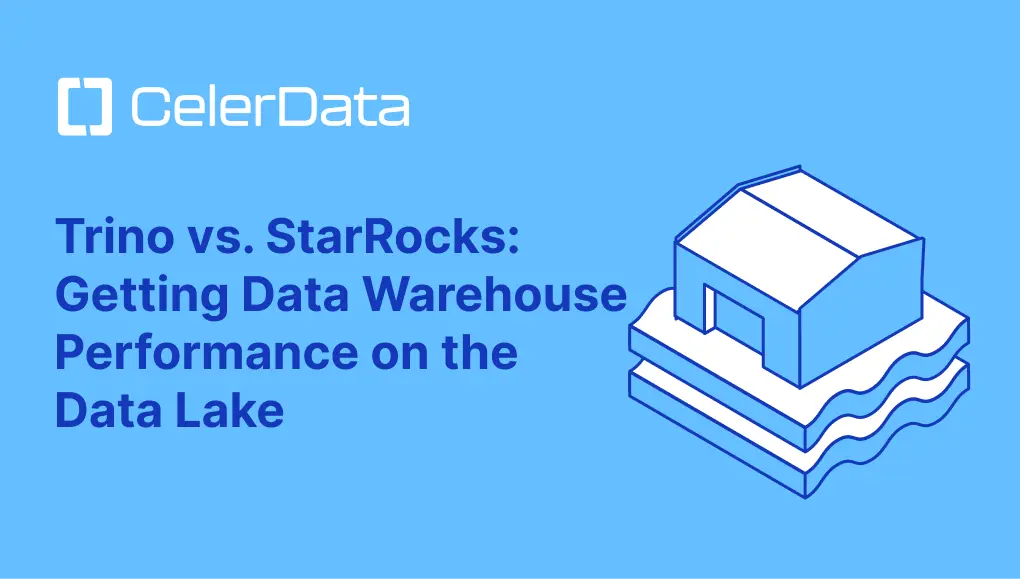
Data Immutability

Join StarRocks Community on Slack
Connect on SlackWhat Is Data Immutability?
Data immutability refers to the concept where data, once written, remains unchangeable. This principle ensures that information cannot be altered or deleted after creation. Data immutability plays a crucial role in maintaining the integrity and security of data. By preventing unauthorized modifications, data immutability protects against data corruption, accidental deletions, and ransomware attacks.
The idea of data immutability has evolved over time. In the past, organizations relied on physical records to maintain unchangeable data. For example, medical records have always required a high level of integrity. Medical records track procedures, tests, appointments, and prescriptions in a patient's history. Financial records also need immutability to ensure that transactions remain accurate and untampered. Modern computing has adopted these principles, leading to the development of advanced technologies that enforce data immutability.
Key Concepts
Immutable Data Structures
Immutable data structures are fundamental to achieving data immutability. These structures ensure that once data is created, it cannot be modified. Immutable data structures provide several benefits, including improved data integrity and easier debugging. Developers often use immutable data structures in programming to create reliable and predictable software applications.
Write-Once-Read-Many (WORM) Storage
Write-Once-Read-Many (WORM) storage is a technology that enforces data immutability. WORM storage allows data to be written once and read multiple times without alteration. This technology is essential for preserving records and maintaining data integrity. WORM storage solutions are widely used in industries with stringent regulatory requirements, such as healthcare and finance.
Blockchain and Data Immutability
Blockchain technology exemplifies data immutability in a digital context. Blockchain creates a decentralized ledger where each block contains a record of transactions. Once added to the blockchain, these records cannot be altered or deleted. Blockchain's immutability makes it ideal for applications requiring high levels of security and transparency. Industries such as finance and supply chain management increasingly adopt blockchain to ensure data integrity.
Mutable vs. Immutable Data
Definitions and Differences
Characteristics of Mutable Data
Mutable data allows modifications after creation. This type of data supports real-time updates and customization. Mutable data structures often appear in applications requiring frequent changes, such as user input forms or interactive dashboards. However, mutable data increases the risk of manipulation and requires more attention to security and data retention.
Characteristics of Immutable Data
Immutable data remains unchanged once written. This characteristic ensures data integrity and security. Immutable data structures store all modifications as new versions rather than altering the original data. This approach simplifies debugging and enhances thread safety. Industries with stringent regulatory requirements often prefer immutable data for its reliability and compliance benefits.
Comparative Analysis
Performance Implications
Immutable data types generally offer better performance in scenarios involving concurrent access. The inherent thread safety of immutable data eliminates race conditions, making it suitable for caching and multi-threaded applications. However, immutable data can be less flexible and may consume more memory due to versioning. Mutable data types, while offering real-time updates, may experience slower performance in environments requiring frequent modifications.
Security Considerations
Immutable data provides a higher level of security. The unchangeable nature of immutable data prevents unauthorized alterations and tampering. This makes immutable data ideal for applications needing robust data protection, such as financial transactions and medical records. Mutable data, although more adaptable, poses a greater risk of manipulation and requires stringent security measures to maintain data integrity.
Use Cases for Each Type
-
Immutable Data:
-
Caching to avoid race conditions
-
Financial transactions
-
Medical records
-
Blockchain applications
-
-
Mutable Data:
-
User input forms
-
Interactive dashboards
-
Data transformations
-
Real-time analytics
-
Choosing between mutable and immutable data depends on specific use cases and program requirements. Immutable data types excel in scenarios demanding high security and data integrity. Mutable data types offer flexibility and real-time updates, making them suitable for dynamic applications.
Benefits of Data Immutability
Security and Compliance
Protection Against Ransomware
Data immutability provides a robust defense against ransomware attacks. Immutable backups ensure that once data is written, it cannot be altered or deleted. This prevents cybercriminals from encrypting or modifying the data. Organizations can quickly restore their systems to a pre-attack state, minimizing downtime and maintaining business continuity. Immutable storage solutions like Write-Once-Read-Many (WORM) technology offer an additional layer of security, making it difficult for attackers to compromise critical information.
Regulatory Compliance
Industries such as healthcare and finance must adhere to stringent regulatory requirements. Data immutability helps organizations meet these compliance standards by ensuring data integrity and authenticity. Immutable storage maintains unalterable records, which is crucial for audits and legal investigations. Technologies like blockchain further enhance compliance by providing transparent and tamper-proof records. Organizations can confidently demonstrate adherence to regulations, avoiding penalties and maintaining trust with stakeholders.
Data Integrity and Reliability
Ensuring Data Accuracy
Data immutability guarantees that information remains accurate and unaltered over time. Immutable data structures prevent unauthorized modifications, ensuring that the original data stays intact. This is particularly important for financial transactions and medical records, where data accuracy is paramount. Immutable storage solutions provide a reliable foundation for maintaining data integrity, reducing the risk of errors and discrepancies.
Long-term Data Preservation
Long-term data preservation is essential for historical records and legal documentation. Data immutability ensures that once data is stored, it remains unchanged, preserving its original state. This is vital for industries that require long-term retention of records, such as law and finance. Immutable storage solutions offer a dependable method for safeguarding historical data, ensuring that it remains accessible and unaltered for future reference.
Simplified Data Management
Reduced Complexity
Data immutability simplifies data management by reducing the complexity associated with data modification and version control. Immutable data structures store each change as a new version, eliminating the need for complex tracking systems. This approach streamlines data management processes, making it easier for organizations to maintain accurate records. Developers can focus on building reliable applications without worrying about data corruption or unauthorized changes.
Easier Auditing and Monitoring
Auditing and monitoring become more straightforward with data immutability. Immutable data provides a clear and unalterable history of all transactions and changes. This transparency simplifies the auditing process, making it easier to track and verify data. Organizations can quickly identify any discrepancies or unauthorized modifications, ensuring data integrity and compliance. Immutable storage solutions enhance monitoring capabilities, providing peace of mind for businesses concerned about data security.
Implementing Data Immutability
Technologies and Tools
WORM Storage Solutions
Write Once, Read Many (WORM) storage solutions offer a robust method to implement data immutability. WORM storage allows data to be written once and read multiple times without alteration. This technology ensures that data remains unchangeable, providing a high level of security and integrity. EMC Centera, now part of Dell EMC, exemplifies a WORM storage solution with its content addressable storage (CAS) architecture. This architecture guarantees that data, once written, remains unchanged, making it ideal for industries with stringent regulatory requirements.
Blockchain Platforms
Blockchain technology represents another powerful tool for achieving data immutability. Blockchain creates a decentralized ledger where each block contains a record of transactions. Once added, these records cannot be altered or deleted. This immutability makes blockchain suitable for applications requiring high levels of security and transparency. Financial services and supply chain management increasingly adopt blockchain to ensure the integrity and authenticity of their data.
Industry Examples
Rubrik
Rubrik provides a comprehensive data management platform that emphasizes data immutability. The platform offers immutable backups, ensuring that data remains secure and tamper-proof. Rubrik's solutions protect against ransomware attacks by preventing unauthorized modifications and deletions. This approach guarantees that organizations can quickly restore their systems to a pre-attack state, minimizing downtime and maintaining business continuity.
Cohesity
Cohesity focuses on simplifying data management while ensuring data immutability. The platform provides immutable storage solutions that prevent data from being altered or deleted once written. Cohesity's approach enhances data security and compliance, making it an ideal choice for industries with strict regulatory requirements. The platform also offers robust backup and recovery capabilities, ensuring that organizations can maintain data integrity and reliability.
Commvault
Commvault stands out with its multi-layered approach to data security and immutability. The platform employs advanced technologies such as multi-factor authentication, AES 256-bit encryption, and zero-trust access controls. These features ensure that both internal and external threats are effectively mitigated. Commvault's air-gapped storage solutions further enhance data protection by isolating backup copies from potential attacks. This ensures that recovery options remain intact, providing peace of mind for organizations concerned about data integrity.
Best Practices
Planning and Strategy
Effective implementation of data immutability begins with thorough planning and strategy. Organizations must assess their specific needs and regulatory requirements. A clear understanding of the data types and their respective retention policies is crucial. Developing a comprehensive strategy that outlines the goals and objectives of data immutability will guide the implementation process.
Implementation Steps
Implementing data immutability involves several key steps. First, organizations must choose the appropriate technologies and tools, such as WORM storage solutions or blockchain platforms. Next, they should configure these tools to enforce immutability policies. This includes setting up write-once-read-many configurations and ensuring that data cannot be altered or deleted after creation. Regular testing and validation of the immutability features will ensure that the implementation meets the desired standards.
Monitoring and Maintenance
Ongoing monitoring and maintenance are essential to ensure the continued effectiveness of data immutability. Organizations should establish regular auditing processes to verify that data remains unaltered. Monitoring tools can help detect any unauthorized attempts to modify or delete data. Routine maintenance of the storage infrastructure will ensure that the immutability features continue to function as intended. By staying vigilant, organizations can maintain the integrity and security of their data over time.
Conclusion
Data immutability plays a crucial role in modern data management. The concept ensures the integrity and security of information, making it indispensable for various industries. Key benefits include enhanced data protection, compliance with regulatory requirements, and long-term data preservation. Data immutability also simplifies data management and auditing processes. The future of data immutability looks promising, with increasing adoption across sectors like healthcare, finance, and law. Organizations should explore further reading and consider implementing data immutability to safeguard their critical information.



.jpg)